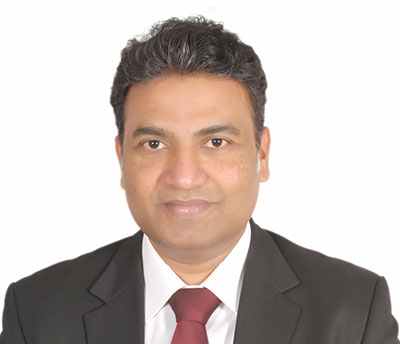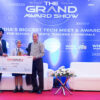World Thalassemia Day: Interview with Dr. Mallikarjun Kalashetty
Thalassemia is a form of inherited blood disorder where the mutation is passed down through families and the body makes inadequate amount of haemoglobin. In Thalassemia, the red blood cells are destroyed which leads to anaemia. World Thalassemia Day is celebrated every year on May 8 to commemorate victims of the disease and to encourage those who are struggling to live with it. On the occasion of World Thalassemia Day 2019, our correspondent Odeal D’Souza speaks to Dr. Mallikarjun Kalashetty, consultant in clinical haematology, haemato-oncology, and blood and bone marrow transplantation physician at Manipal Hospital, Bangalore, about the symptoms of Thalassemia, its treatments and cures.
Dr Mallikarjun Kalashetty is an alumna of Jawaharlal Nehru medical College, Belgaum. He holds a doctorate Clinical Haematology from Seth G S Medical College, and K E M Hospital Mumbai. He also pursued one-year Fellowship in Bone Marrow Transplantation from Vancouver General Hospital, Canada. He has worked as a consultant haematologist, haemato oncologist, and in-charge of blood and marrow transplantation unit at HCG MSR Cancer Center and served as an associate professor at M S Ramaiah Medical College, Bangalore.
Thalassaemia is characterised by anaemia (a condition in which there is a deficiency of haemoglobin in the blood), and severity of anaemia depends on the type of thalassaemia, which are clinically divided into – Thalassaemia major — most severe form of thalassaemias causing severe anaemia very early in life, or Thalassaemia minor — characterised by mild anaemia, usually not requiring blood transfusion and Thalassaemia intermedia — characterised by moderate anaemia, that requires frequent transfusion.
 “It is estimated that our country would have around 100,000 patients with beta thalassaemia syndrome and about 10,000 to 12,000 thalassaemic children are born annually in India. About five percent of the world’s population has at least one thalassaaemia variant allele, with as many as 900,000 individuals with clinically significant disease, and an estimated 80–90 million people, are carriers of beta thalassaemia. The South-East Asian region (India, Thailand and Indonesia) account for approximately 50 percent of the world’s carriers – which is approximately 40 million people, where as developed world, including Europe and the Americas account for only 10–13 percent of the world’s carriers,” explains Dr. Kalashetty.
“It is estimated that our country would have around 100,000 patients with beta thalassaemia syndrome and about 10,000 to 12,000 thalassaemic children are born annually in India. About five percent of the world’s population has at least one thalassaaemia variant allele, with as many as 900,000 individuals with clinically significant disease, and an estimated 80–90 million people, are carriers of beta thalassaemia. The South-East Asian region (India, Thailand and Indonesia) account for approximately 50 percent of the world’s carriers – which is approximately 40 million people, where as developed world, including Europe and the Americas account for only 10–13 percent of the world’s carriers,” explains Dr. Kalashetty.
According to Dr. Kalashetty, the most common symptom of thalassaemia disorders include anaemia, which can be mild, or very severe requiring blood transfusion depending on the type of thalassaemia. Only curative treatment of thalassaemia major currently is allogeneic hematopoietic stem cell transplantation (HSCT), also termed as bone marrow transplantation. Outcomes of transplantation are best if transplantation is done early – first 5 to 7 years of life, prior to the development of significant iron overload. Non-transplant medical management of thalassaemia includes chronic regular red blood cell transfusion, prevention of excess iron storage with chelation therapy; and treatment of the complications of iron overload. Splenectomy may be appropriate in few individuals.
“Thalassaemia major can be cured by allogeneic bone marrow transplantation, but more importantly it can be easily prevented by carrier detections, special molecular diagnostics, genetic counselling, and prenatal diagnosis. It is important that the communities, non-government organisations, governments, and medical fraternity to come together and support children, adolescents, and adults suffering from the condition and also their families, who indeed need all the support they can get,” concludes Dr. Kalashetty.
















Add comment